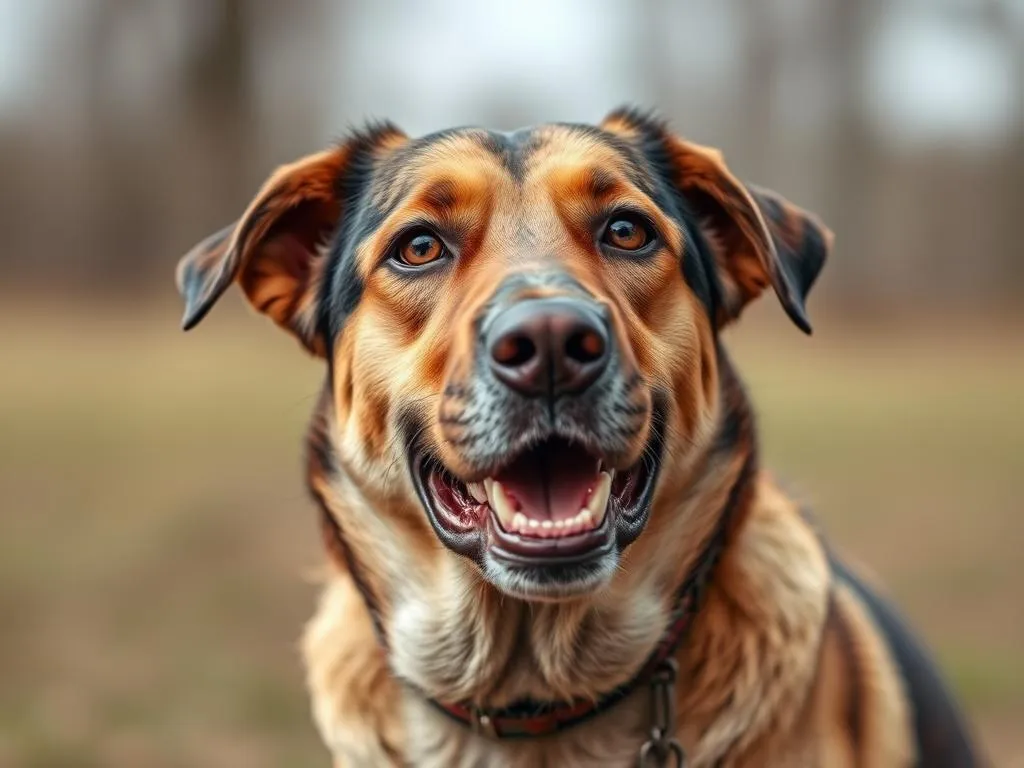
Introduction
Liver disease in dogs is a serious condition that can significantly impact their overall health and quality of life. The liver plays a vital role in many bodily functions, including detoxification, protein synthesis, and digestion. When a dog suffers from liver disease, proper nutrition becomes crucial in managing the condition and supporting liver function. This article will explore the best dog foods for liver disease, highlighting specific dietary needs and recommending top food options to help your furry friend thrive.
Understanding Liver Disease in Dogs
What is Liver Disease?
Liver disease in dogs refers to any condition that affects the liver’s ability to function effectively. This can include a variety of disorders, such as hepatitis (inflammation of the liver), cirrhosis (scarring of the liver tissue), and portosystemic shunts (abnormal blood flow bypassing the liver). Each type of liver disease can have different causes and symptoms, making it essential for dog owners to understand the nuances of this critical organ’s health.
Symptoms of Liver Disease
Recognizing the signs of liver disease early can lead to better outcomes for your dog. Some common symptoms include:
- Loss of appetite
- Weight loss
- Vomiting and diarrhea
- Increased thirst and urination
- Lethargy
- Yellowing of the skin or eyes (jaundice)
- Behavioral changes
If you notice any of these symptoms, it’s important to consult your veterinarian for a thorough evaluation and diagnosis.
Causes of Liver Disease in Dogs
Several factors can contribute to liver disease in dogs:
- Genetic predispositions: Some breeds are more susceptible to liver conditions.
- Environmental toxins: Exposure to certain chemicals and toxins can harm liver function.
- Poor diet and obesity: Low-quality food and excessive weight can strain the liver.
- Infections and other health issues: Viral or bacterial infections can lead to liver complications.
Nutritional Needs for Dogs with Liver Disease
Key Nutrients for Liver Health
Understanding the nutritional requirements for dogs with liver disease is vital for their management and recovery. Here are the essential nutrients to consider:
-
Protein: Dogs with liver disease need high-quality protein, but the amount should be carefully monitored. While protein is essential for tissue repair and overall health, excessive amounts can worsen liver function. Look for easily digestible proteins such as chicken, fish, and eggs.
-
Carbohydrates: Complex carbohydrates, such as sweet potatoes and brown rice, can provide energy without overwhelming the liver. These types of carbs help maintain stable blood sugar levels.
-
Fats: Essential fatty acids, particularly omega-3 and omega-6, can help reduce inflammation and support overall liver health. Sources include fish oil and flaxseed oil.
-
Vitamins and Minerals: Certain vitamins and minerals, such as vitamin E, vitamin K, and zinc, play a crucial role in liver function. They support various metabolic processes and can help protect the liver from damage.
Importance of Low Copper Diet
Dogs with liver disease often struggle with copper accumulation, which can further harm liver health. High copper levels can lead to toxic effects and worsen liver function. Therefore, it’s essential to emphasize a low copper diet. Foods rich in copper, such as liver, shellfish, and certain grains (like wheat and corn), should be avoided.
Factors to Consider When Choosing Dog Food for Liver Disease
Life Stage of the Dog
The nutritional needs of a dog can vary significantly based on their life stage. Puppies, adults, and seniors all have different dietary requirements. For instance, puppies may require more protein and calories for growth, while senior dogs might need a diet that is lower in calories but still rich in nutrients to maintain health.
Specific Medical Needs
Tailoring a dog’s diet to accommodate other health issues is crucial. For example, if a dog also suffers from kidney disease or diabetes, the diet may need adjustments to ensure it supports both conditions without compromising liver health.
Food Texture and Palatability
Many dogs with liver disease experience a decreased appetite, making palatability an essential consideration. Offering a variety of textures—such as wet food or mixed diets—can encourage a dog to eat more. It’s crucial to provide meals that are appealing and easy to consume.
Top Recommended Dog Foods for Liver Disease
Commercial Dog Food Options
Selecting high-quality commercial dog food specifically formulated for liver health can significantly benefit your dog. Here are some top brands:
- Hill’s Prescription Diet l/d Liver Care
- Ingredients: High-quality proteins, low copper, and essential fatty acids.
-
Benefits: Designed to support liver function while providing balanced nutrition. Highly palatable for dogs with decreased appetite.
-
Royal Canin Veterinary Diet Hepatic
- Ingredients: Low copper, highly digestible proteins, and a balanced blend of nutrients.
-
Benefits: Supports liver health and helps manage liver disease symptoms effectively. Formulated to stimulate appetite.
-
Purina Pro Plan Veterinary Diets HA Hydrolyzed Formula
- Ingredients: Hydrolyzed proteins and a blend of essential nutrients.
- Benefits: Ideal for dogs with food sensitivities and liver issues. Promotes liver health without overloading the system.
Homemade Diet Options
For pet owners interested in preparing homemade meals, it’s important to ensure the diet is balanced and meets all nutritional needs. Here are some guidelines:
- Protein Sources: Opt for lean meats like chicken, turkey, and fish.
- Carbohydrates: Include sweet potatoes, brown rice, or oats as a source of digestible carbohydrates.
- Fruits and Vegetables: Offer low-copper options such as carrots and green beans for added vitamins and minerals.
Sample Recipe for a Homemade Liver-Friendly Meal
Ingredients:
– 1 cup cooked white rice
– ½ cup cooked, shredded chicken
– ½ cup steamed carrots
– 1 tablespoon fish oil
Instructions:
1. Cook the rice according to package instructions.
2. Steam the carrots until tender.
3. Combine all ingredients in a bowl and mix well.
4. Serve in appropriate portion sizes based on your dog’s weight and dietary needs.
Supplements and Additives
In addition to a balanced diet, certain supplements can help support liver function:
- Milk Thistle: Known for its liver-protective properties, milk thistle can aid in detoxification.
- SAMe (S-Adenosyl Methionine): This supplement can help improve liver function and support regeneration.
- Omega-3 Fatty Acids: Fish oil supplements can reduce inflammation and support overall liver health.
Always consult with your veterinarian before introducing any new supplements to ensure they are appropriate for your dog’s specific health needs.
Feeding Guidelines for Dogs with Liver Disease
Portion Control and Meal Frequency
Feeding smaller, more frequent meals can help manage your dog’s liver disease. This approach can aid digestion and ensure that your dog receives adequate nutrition without overwhelming the liver. A general guideline is to feed your dog two to four small meals throughout the day instead of one or two larger meals.
Monitoring Your Dog’s Health
Regular veterinary check-ups are essential to monitor your dog’s liver function and overall health. Your veterinarian can provide guidance on dietary adjustments based on your dog’s progress and any changes in their condition.
Signs of Improvement or Deterioration
After making dietary changes, observe your dog for signs of improvement or deterioration. Look for:
- Increased energy levels
- Improved appetite
- Stable weight
- Resolution of gastrointestinal symptoms (vomiting, diarrhea)
If you notice any concerning changes, consult your veterinarian promptly.
Conclusion
Proper nutrition is a cornerstone of managing liver disease in dogs. Choosing the best dog foods for liver disease and understanding your dog’s unique dietary needs can significantly improve their quality of life. Always consult with a veterinarian to create a personalized dietary plan that addresses your dog’s specific condition and health requirements. By prioritizing nutrition and regular veterinary care, you can help your beloved pet lead a healthier and happier life.
FAQs
Can dogs with liver disease eat regular dog food?
Dogs with liver disease should consume specialized diets formulated for liver health, as regular dog food may not meet their nutritional needs and could exacerbate their condition.
How can I tell if my dog’s liver diet is working?
Signs of improvement may include increased energy, a better appetite, stable weight, and fewer gastrointestinal issues. Regular vet check-ups will provide a more accurate assessment of liver function.
Are homemade diets safe for dogs with liver disease?
Homemade diets can be safe if they are balanced and formulated to meet the dog’s specific nutritional requirements. Consult with a veterinarian before transitioning to a homemade diet.
What are the best protein sources for dogs with liver disease?
High-quality, easily digestible proteins such as chicken, fish, and eggs are recommended for dogs with liver disease. Always monitor the quantity to avoid overwhelming the liver.
Should I be concerned about copper in my dog’s diet?
Yes, copper accumulation can worsen liver disease. It is essential to choose foods that are low in copper and avoid high-copper ingredients to support liver health effectively.









